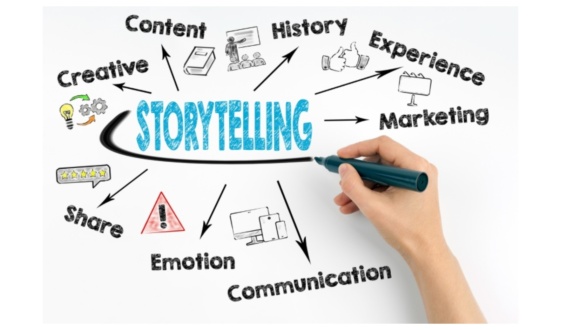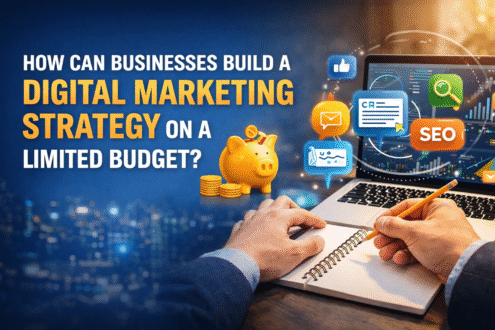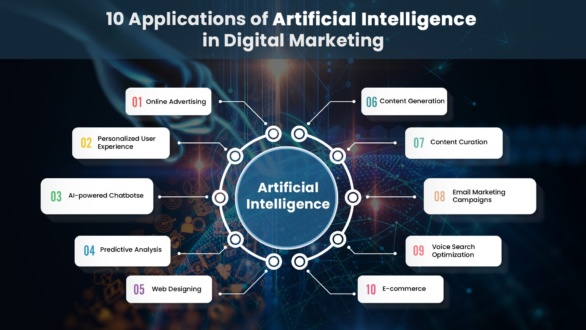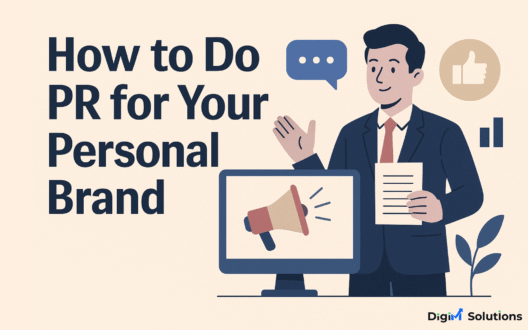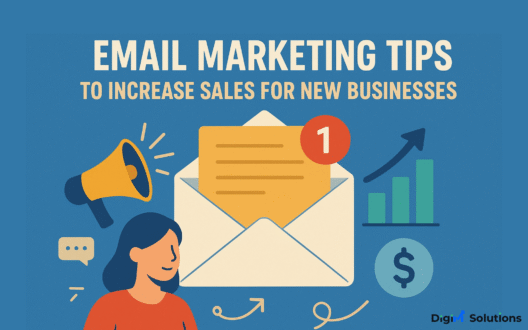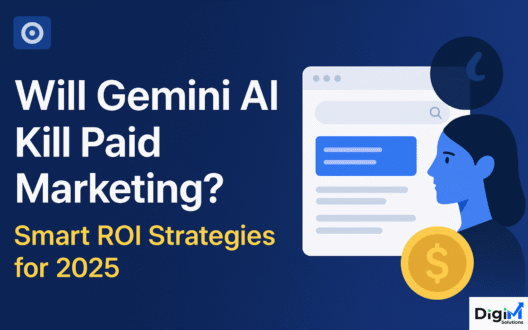Digital Marketing Strategies for Small Local Businesses in 2025

In today’s competitive landscape, small businesses can’t rely only on word-of-mouth to grow. Customers now search, compare, and decide online before stepping into a store or booking a service. That’s why Digital Marketing has become the backbone of growth for local businesses in 2025. From optimizing your Google Business Profile to running hyperlocal ads and leveraging AI tools, smart digital strategies can help you stand out in your community, attract the right customers, and scale faster than ever. In this article, we’ll explore the most effective digital marketing strategies for small local businesses that not only boost visibility but also convert leads into loyal clients.
1. Optimize Local SEO & Google Business Profile
Optimizing local SEO and your Google Business Profile is the foundation for small businesses to get discovered online. A complete and accurate GMB listing increases visibility in local searches and Google Maps, helping potential customers find your services easily. Coupled with positive reviews, local citations, and relevant images, this strategy builds credibility and trust. For 2025, businesses that focus on local SEO gain a competitive edge by appearing at the top when customers search for services in their area.
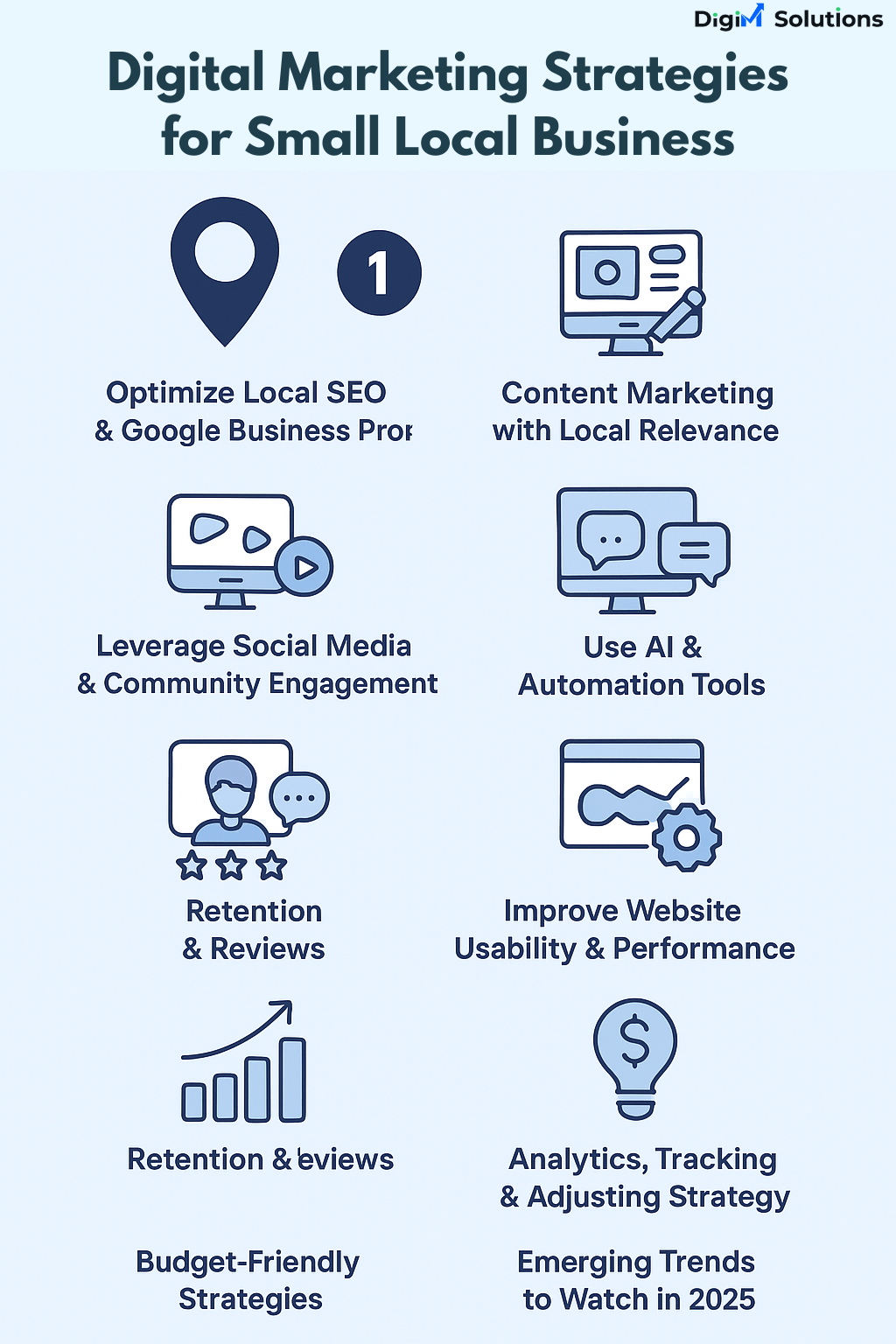
Claim and Verify Your Google Business Profile
- Claim your business to gain control of your profile.
- Verify it for legitimacy and higher trust.
- Ensure accurate Name, Address, Phone (NAP) details.
Optimize Business Information
- Add detailed service descriptions.
- Use local keywords like “best [service] in [City].”
- Upload high-quality images and videos of your team, office, or products.
Manage Reviews and Reputation
- Encourage satisfied customers to leave reviews.
- Respond professionally to all reviews, including negative ones.
- Highlight reviews on social media and website to increase trust.
Use Local Citations and Insights
- List your business on local directories for visibility.
- Track GMB insights for clicks, calls, and direction requests.
- Adjust strategies based on analytics to attract more customers.
2. Content Marketing with Local Relevance
Content marketing is an essential tool for small businesses to attract, educate, and convert local customers. By creating content that addresses specific problems in your area, you establish authority and improve SEO. Blogs, videos, and infographics tailored to your city or community help users find relevant solutions while building trust. Consistently sharing helpful content increases engagement, drives traffic, and encourages potential customers to choose your business over competitors.
Understand Local Customer Needs
- Research frequently asked questions in your city.
- Create content that solves real local problems.
- Include location-specific keywords naturally.
Diversify Content Formats
- Use blogs, videos, infographics, and social posts.
- Highlight local events or case studies for engagement.
- Include testimonials to build credibility.
Internal Linking and SEO Optimization
- Link to relevant services or blog articles.
- Use anchor texts like “Content marketing strategies for small businesses.”
- Update content regularly to maintain relevance and rankings.
Highlight Your Expertise
- Share guides, tips, and how-to articles specific to your city.
- Provide actionable solutions for local problems.
- Showcase past success stories to reinforce credibility.
3. Leverage Social Media & Community Engagement
Social media is a powerful tool for local businesses to engage with their community, increase brand awareness, and drive leads. Choosing the right platforms and sharing relevant content allows you to connect directly with your audience. Participation in local events, collaborations with influencers, and consistent engagement helps build loyalty and trust. In 2025, businesses that combine organic content, paid ads, and active community engagement will see higher visibility and stronger customer relationships.
Choose the Right Platforms
- Focus on Facebook, Instagram, and WhatsApp for local reach.
- Use geotags and local hashtags to target nearby customers.
- Share behind-the-scenes, products, and services.
Engage with the Local Community
- Sponsor or attend local events.
- Collaborate with local influencers.
- Share user-generated content and customer testimonials.
Use Paid Advertising Strategically
- Run geo-targeted ads for your service area.
- Start with small budgets and A/B test ad creatives.
- Monitor performance and optimize campaigns for ROI.
Build Consistency and Trust
- Post regularly and reply to followers.
- Encourage reviews and social engagement.
- Strengthen brand presence and foster customer loyalty.
4. Paid & Hyperlocal Advertising
Paid advertising allows small businesses to reach potential customers more efficiently than organic methods alone. Hyperlocal targeting ensures that your ads are shown to people within your service area, reducing wasted spend and increasing ROI. From Google Ads to social media promotions, investing in paid campaigns can help your business stand out in a competitive local market. Proper targeting and optimization are key to converting ad views into leads and sales.
Google Ads for Local Searches
- Run location-specific campaigns targeting high-intent keywords.
- Use phrases like “[service] near me” or “[service] in [City].”
- Track conversions and optimize bids for best results.
Social Media Paid Campaigns
- Use geo-targeted ads on Facebook and Instagram.
- Promote special offers, discounts, or events.
- Test different ad creatives and formats to increase engagement.
Budget-Friendly Paid Strategies
- Start with small daily budgets to minimize risk.
- Focus on high-intent local audiences for better ROI.
- Monitor analytics to scale campaigns that perform well.
Retargeting to Increase Conversions
- Retarget website visitors with display or social ads.
- Offer promotions to users who previously engaged.
- Increase conversions by reminding potential customers of your services.
5. Use AI & Automation Tools
AI and automation tools are transforming the way small businesses handle digital marketing. By automating repetitive tasks, analyzing customer behavior, and generating insights, you can save time and improve efficiency. From content creation to lead management, AI-driven strategies help you make data-informed decisions while maintaining personalized engagement with local customers. Businesses that adopt AI early can gain a competitive edge in 2025.
AI for Content Creation
- Generate blog ideas, social media posts, and ad copy quickly.
- Optimize keywords and content for SEO using AI tools.
- Save time while maintaining consistent posting.
Marketing Automation
- Automate email campaigns and follow-ups for leads.
- Segment customers for personalized messages.
- Track performance with analytics dashboards to refine campaigns.
Chatbots and Customer Engagement
- Use AI chatbots on your website or WhatsApp for instant responses.
- Improve customer satisfaction with quick replies.
- Integrate bots with booking, service inquiries, or FAQs.
Data-Driven Decisions
- Monitor campaign performance using AI analytics.
- Predict trends and adjust strategies proactively.
- Make informed decisions faster, increasing efficiency.
6. Improve Website Usability & Performance
Your website is the hub of your digital presence, and its performance directly impacts user experience and conversions. A fast, mobile-friendly, and well-structured website helps potential customers navigate easily, find information quickly, and trust your business. Optimizing usability and performance not only improves engagement but also boosts your search engine rankings, making it easier for local customers to discover your services.
Mobile-Friendly Design
- Ensure responsive design for all devices, especially smartphones.
- Optimize images, scripts, and layout for faster loading.
- Simplify navigation to help users find information quickly.
Clear Call-to-Actions (CTAs)
- Place CTAs prominently on pages for easy access.
- Encourage contact, bookings, or purchases.
- Test different CTA designs and text for better conversions.
SEO-Friendly Website Structure
- Use clear headings (H1, H2, H3) and descriptive URLs.
- Optimize meta titles, descriptions, and on-page SEO.
- Include internal links to services, blogs, or other resources.
Fast Loading Pages
- Compress images and minify scripts.
- Use reliable hosting and caching techniques.
- Regularly monitor site speed and fix bottlenecks.
7. Retention & Reviews
Retaining existing customers is often more cost-effective than acquiring new ones. Encouraging reviews, providing excellent service, and engaging past customers strengthens trust and loyalty. Positive reviews improve your online reputation and local search rankings, while retention strategies ensure repeat business. By focusing on both reviews and retention, small businesses can build long-term relationships that drive steady revenue.
Loyalty Programs
- Offer discounts, points, or rewards for repeat customers.
- Promote loyalty programs through social media and email campaigns.
- Track engagement and adjust program benefits for effectiveness.
Request Customer Reviews
- Ask satisfied customers to leave reviews on Google and social media.
- Follow up with personalized emails or messages.
- Highlight reviews on your website to increase credibility.
Engage Past Customers
- Send newsletters with updates, tips, and offers.
- Personalize messages to maintain interest.
- Encourage participation in events or promotions.
Monitor Reputation
- Track online mentions of your brand.
- Respond professionally to negative feedback.
- Adjust strategies based on customer sentiment.
8. Analytics, Tracking & Adjusting Strategy
Data-driven decision-making is essential for small businesses to optimize marketing efforts. Analytics help you understand what’s working, what’s not, and where to focus resources. By tracking website traffic, social media performance, and paid campaigns, you can make informed adjustments to improve results. Regularly reviewing metrics ensures your digital marketing strategy evolves with customer behavior.
Track Website Traffic
- Use Google Analytics to monitor visitors and behavior.
- Identify top-performing pages and popular content.
- Track conversions to evaluate effectiveness.
Monitor Social Media Performance
- Measure likes, shares, comments, and engagement rates.
- Adjust content types based on audience interaction.
- Test posting times and formats to improve reach.
Track Paid Campaigns
- Monitor ROI, click-through rates, and conversion rates.
- Adjust bids, targeting, and creatives for better results.
- Test ad variations to identify high-performing campaigns.
Adjust Marketing Strategy
- Refine campaigns based on performance data.
- Focus resources on strategies that generate leads.
- Continuously optimize for higher ROI and efficiency.
9. Budget-Friendly Strategies
Small businesses often have limited budgets, making cost-effective marketing strategies essential. Focusing on organic growth, local SEO, and strategic partnerships allows you to maximize results without overspending. Using free tools and optimizing resources ensures that every marketing dollar drives value. Implementing budget-friendly tactics helps maintain consistent visibility while keeping expenses under control.
Organic Social Media Growth
- Post consistently with valuable, engaging content.
- Interact with your local community through comments and messages.
- Repurpose content across platforms to save time and effort.
Local SEO Optimization
- Optimize GMB and website for local search queries.
- Encourage reviews and showcase them to boost credibility.
- Focus on high-intent keywords to attract ready-to-buy customers.
Partnerships & Collaborations
- Collaborate with local businesses or influencers.
- Co-promote events, products, or services.
- Share audiences to reduce marketing costs and reach more people.
DIY Tools & Free Resources
- Use free design, scheduling, and analytics tools.
- Automate simple marketing tasks to save time.
- Monitor performance using free insights to improve strategy.
10. Emerging Trends to Watch in 2025
Staying ahead of emerging trends ensures small businesses remain competitive. In 2025, trends like voice search, video marketing, AI-driven personalization, and hyperlocal marketing will dominate. Adopting these early gives businesses an advantage in attracting and retaining customers. Understanding and implementing these trends will help you connect with modern consumers and grow your local presence effectively.
Voice Search Optimization
- Optimize content for natural language and question-based queries.
- Focus on local intent keywords like “near me” searches.
- Ensure website content answers common questions clearly.
Video Marketing
- Use short-form videos for social media engagement.
- Share tutorials, behind-the-scenes, and product demos.
- Videos improve visibility and boost SEO rankings.
AI-Driven Personalization
- Tailor email campaigns and content recommendations.
- Use predictive analytics to anticipate customer needs.
- Provide personalized offers to increase engagement and conversions.
Hyperlocal Marketing
- Target micro-locations for ads and promotions.
- Partner with local businesses for events or campaigns.
- Focus on building a strong presence in your immediate neighborhood.
In 2025, small local businesses have a unique opportunity to harness the power of digital marketing to enhance their visibility, engage with their community, and drive growth. By focusing on strategies such as optimizing local SEO and Google Business Profiles, creating locally relevant content, and leveraging social media platforms, businesses can effectively reach their target audience and build lasting relationships.
Digim Solutions stands ready to assist small businesses in navigating the digital landscape. With expertise in areas like SEO, paid marketing, social media management, and lead generation, Digim Solutions offers tailored strategies to meet the specific needs of local businesses. By partnering with Digim Solutions, small businesses can unlock their full potential and achieve sustainable growth in the competitive digital marketplace.
Request a free quote
We offer professional SEO services that help websites increase their organic search score drastically in order to compete for the highest rankings even when it comes to highly competitive keywords.


